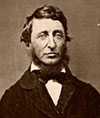-
(单词翻译:双击或拖选)
影片对白
 KEATING: A man is not very tired, he is exhausted1. And don't use very sad, use- Come on, Mr. Overstreet, youtwerp.
KEATING: A man is not very tired, he is exhausted1. And don't use very sad, use- Come on, Mr. Overstreet, youtwerp.
KEATING: Exactly! Morose. Now, language was developed for one endeavor, and that is? Mr. Anderson? Come on! Are you a man or an amoeba?
KEATING: Mr. Perry?
NEIL: Uh, to communicate.
KEATING: No! Towoowomen. Today we're talking about William Shakespeare.
BOY: Oh, God!
KEATING: I know. A lot of you looked forward to this about as much as you look forward to root canal work. We're gonna talk about Shakespeare as someone who writes something very interesting. Now, many of you have seen Shakespeare done very much like this: "O Titus, bring your friend hither." But if any of you have seen Mr. Marlon Brando, you know, Shakespeare can be different. "Friend, Romans, countrymen, lend me your ears." You can also imagine, maybe, John Wayne as Macbeth going, "Well, is this a dagger3 I see before me?"
KEATING: "Dogs, sir? Oh, not just now. I do enjoy a good dog once in a while, sir. You can have yourself a three-course meal from one dog. Start with your canine4 crudités; go to your Fido flambé for main course and for dessert, a Pekingese parfait. And you can pick your teeth with a little paw."
KEATING: Why do I stand up here? Anybody?
CHARLIE: To feel taller.
KEATING: No!
KEATING: Thank you for playing, Mr. Dalton. I stand upon my desk to remind myself that we must constantly look at things in a different way. You see, the world looks very different from up here. You don't believe me? Come see for yourself. Come on. Come on! Just when you think you know something, you have to look at it in another way. Even though it may seem silly or wrong, you must try! Now, when you read, don't just consider what the author thinks. Consider what you think. Boys, you must strive to find your own voice. Because the longer you wait to begin, the less likely you are to find it at all. Thoreau said, "Most men lead lives of quiet desperation." Don't be resigned to that. Break out! Don't just walk off the edge like lemmings. Look around you. There! There you go, Mr. Priske. Thank you! Yes! Dare to strike out and find new ground. Now, in addition to your essays, I would like you to compose a poem of your own, an original work. That's right! You have to deliver it aloud in front of the class on Monday. Bonne chance, gentlemen. Mr. Anderson? Don't think that I don't know that this assignmentscares the hell out of you, you mole5.
妙词佳句,活学活用
1. twerp
If you call someone twerp, you are insulting them and saying that they are silly or stupid. 无用之人,蠢人。
在口语和俚语里表示类似意思的词还有很多,如:imbecile,moron,jerk,fool, idiot等等。这些都是在电影里经常听到的单词。
2. woo
这个词有好几个用法值得探讨。
a. If a man woos a woman, he spends time with her and tries to persuade her to marry him.(男人)求爱、求婚,这是一种稍微有点老式的语言。
e.g.: The penniless author successfully wooed and married Fanny.
b. If you woo people, you try to encourage them to help you, support you, or vote for you, for example by promising6 them things which they would like. 争取支持,引诱、诱惑。
e.g.: They wooed customers by offering low interest rates.
All the candidates wooed the voters before the election.
3. scare the hell out of sb
这是口语中极常用的一个句子,意思是“吓坏某人”。表示“把某人吓坏了”还有一个表达是:Scare the bejesus out of sb。 如:When did you come into the room? You scare the hell out of me!
文化面面观
1.Marlon Brando
 |
|
Marlon Brando inThe Godfather |
Marlon Brando won an Academy Award for his performance as Don Vito Corleone in Francis Ford9 Coppola's 1972 motion picture The Godfather. The film's critical acclaim10 and box-office success signaled the beginning of a revival11 in the motion-picture industry. In the 1970s, a new generation of directors that included Coppola, George Lucas, Steven Spielberg, and Martin Scorsese began to reshape Hollywood studios and redefine the blockbuster phenomenon.
2.Thoreau
 |
|
Henry David Thoreau |
Thoreau, Henry David (1817-1862) is American writer, philosopher, and naturalist7 who believed in the importance of individualism. Thoreau's best-known work is Walden; or, Life in the Woods (1854), which embodies12 his philosophy and reflects his independent character. The book records Thoreau's experiences in a hand-built cabin, where he spent two years in partial seclusion13, at Walden Pond near Concord14, Massachusetts.
梭罗是美国思想史上一个有创见的人物,他一生大部分时间在肯考德和马萨诸塞度过,在这些地方他同新英格兰的先验论者来往并在瓦尔登湖的岸边住了两年。他的主要作品还有《公民的反抗》。
思想火花
影片中学生的年龄大约在十七八岁,正是对事物有着自以为是的看法的年纪,一旦对事情有了自己的看法就很难接受别人的意见。Mr. Keating并没有把自己的想法强加给学生,而是通过让学生印象深刻的举动--站在桌子上,让学生明白一个再简单不过的道理:当你觉得自己正确的时候,一定要尝试从不同的角度看问题,只有站在不同的角度,你才可能发现自己原本并不了解的地方。这部分的台词自然就成了本片的经典台词之一。
考考你
将下面的句子译成汉语。
1. I stand upon my desk to remind myself that we must constantly look at things in a different way.
2. Just when you think you know something, you have to look at it in another way. Even though it may seem silly or wrong, you must try!
《死亡诗社》(精讲之一)考考你 参考答案
1. 信不信由你,我和Mary下个月就要结婚了!
Believe it or not, I will marry Mary next month.
2. 我进来的时候教室里乱糟糟的,发生了什么事我是一无所知。
When I entered the classroom, it was in a great mess. I didn't have any clue about what was going on.
3. 他的故事没有一点是真的。There is not an iota15 of truth in his story.
 收听单词发音
收听单词发音
1
exhausted

|
|
| adj.极其疲惫的,精疲力尽的 | |
参考例句: |
|
|
|
2
morose

|
|
| adj.脾气坏的,不高兴的 | |
参考例句: |
|
|
|
3
dagger

|
|
| n.匕首,短剑,剑号 | |
参考例句: |
|
|
|
4
canine

|
|
| adj.犬的,犬科的 | |
参考例句: |
|
|
|
5
mole

|
|
| n.胎块;痣;克分子 | |
参考例句: |
|
|
|
6
promising

|
|
| adj.有希望的,有前途的 | |
参考例句: |
|
|
|
7
naturalist

|
|
| n.博物学家(尤指直接观察动植物者) | |
参考例句: |
|
|
|
8
acting

|
|
| n.演戏,行为,假装;adj.代理的,临时的,演出用的 | |
参考例句: |
|
|
|
9
Ford

|
|
| n.浅滩,水浅可涉处;v.涉水,涉过 | |
参考例句: |
|
|
|
10
acclaim

|
|
| v.向…欢呼,公认;n.欢呼,喝彩,称赞 | |
参考例句: |
|
|
|
11
revival

|
|
| n.复兴,复苏,(精力、活力等的)重振 | |
参考例句: |
|
|
|
12
embodies

|
|
| v.表现( embody的第三人称单数 );象征;包括;包含 | |
参考例句: |
|
|
|
13
seclusion

|
|
| n.隐遁,隔离 | |
参考例句: |
|
|
|
14
concord

|
|
| n.和谐;协调 | |
参考例句: |
|
|
|
15
iota

|
|
| n.些微,一点儿 | |
参考例句: |
|
|
|

















